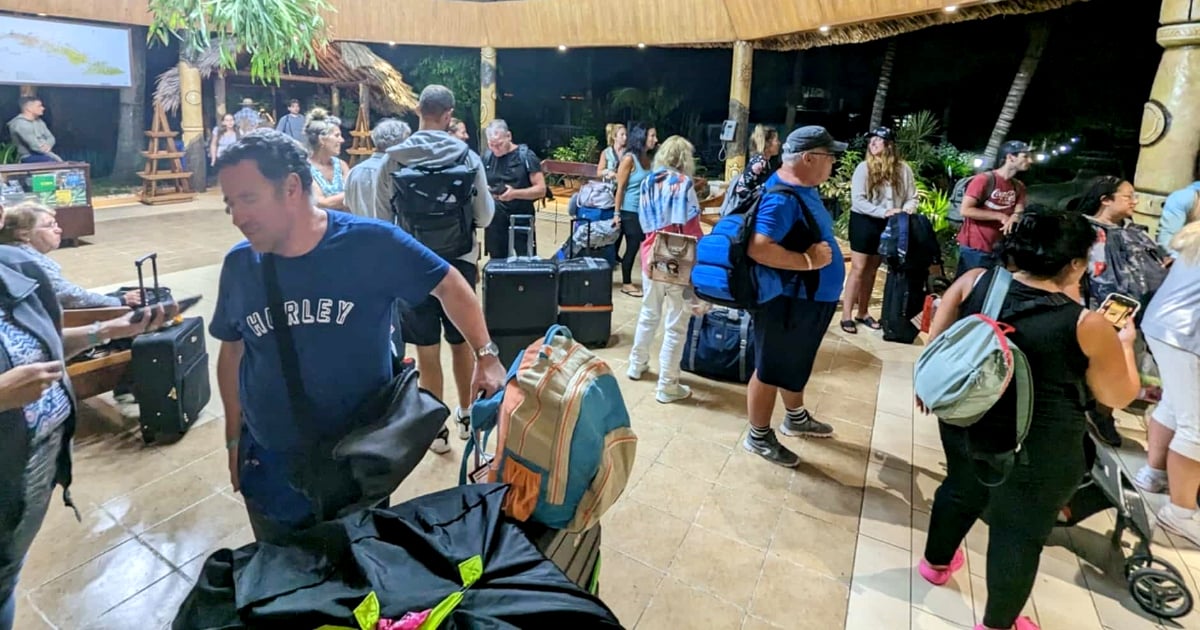


A Canadian travel agent recommended that tourists from his country refrain from going to Cuba, given the energy emergency situation caused by the collapse of the national electricity system, in addition to the effects of Hurricane Oscar.
“They should wait at least a month,” said François Laramée in an interview this Monday with the Canadian media TVA Nouvelles after returning from a trip to the Island where he experienced the consequences of the widespread blackout that occurred last Friday, which still keeps the country in a critical situation.
Quebec tourists interviewed by the aforementioned media described their stay in the regions of Holguín and Varadero as unpleasant experiences, attributing it more to the widespread blackout than to the passage of Oscar.
The lack of electrical supply in hotel facilities has messed up all the activities for international tourism that take place in these accommodations. Despite having their own generators, the inconveniences caused by the collapse of the national electro-energy system (SEN) are noticeable even among the Cuban staff serving the tourists.
“The advice I would give is to wait at least a month before traveling to Cuba, while you recover,” Laramée said. “There is a limit to believing that you can be fine in the midst of a situation like this!”
According to the travel agent, the hotels “operate with generators.” Laramée was staying at the Starfish in Varadero; however, other tourists who have been staying in recent days in the main tourist hub of the Island claimed that there are hotels where the generators do not work.
In addition to the annoying noise caused by these machines, there are other circumstances that hinder the rest and relaxation that tourists seek. “They didn’t give us any information either!” Laramée complained, emphasizing that most Cuban employees are “tired” and “exhausted.”
For Sylvie Beaulne, a Québécoise who travels regularly to Cuba, the situation is particularly concerning, especially due to the humidity, the rains, the mosquitoes, and the lack of food.
“Cubans are hungry, they are sad, their hearts hurt […] People should not travel at this moment, but bring food,” the woman explained to TVA Nouvelles.
Beaulne, who had been in Varadero since October 14, described a bleak situation. “The situation is very difficult for Cubans. Yesterday I went fishing and there were dozens of people trying to fish to sell it […] Some glass windows of government establishments were also broken; a riot may occur.”
Caroline Giasson, another travel agent staying in the Holguín region who was interviewed by the mentioned outlet, acknowledged that Cubans “make great efforts to accommodate us despite the fact that they themselves do not have much.”
“Finally, I was supposed to leave today [Monday], but there is a problem at the airport. The computers are not working, and Monday flights are postponed to Tuesday,” Giasson added.
Regarding the possibility of more Quebec tourists traveling to Cuba, the travel agent was cautious. “You have to be aware of the situation and that anything can happen,” she analyzed. “If you are an anxious person and need stability, it can be stressful for you.”
Until this Monday, the Canadian government maintained warnings of “great caution” and advised avoiding all non-essential travel to Cuba and its eastern regions of Guantánamo, Holguín, and Las Tunas.
Do you have anything to report? Write to CiberCuba:
editors@cibercuba.com +1 786 3965 689